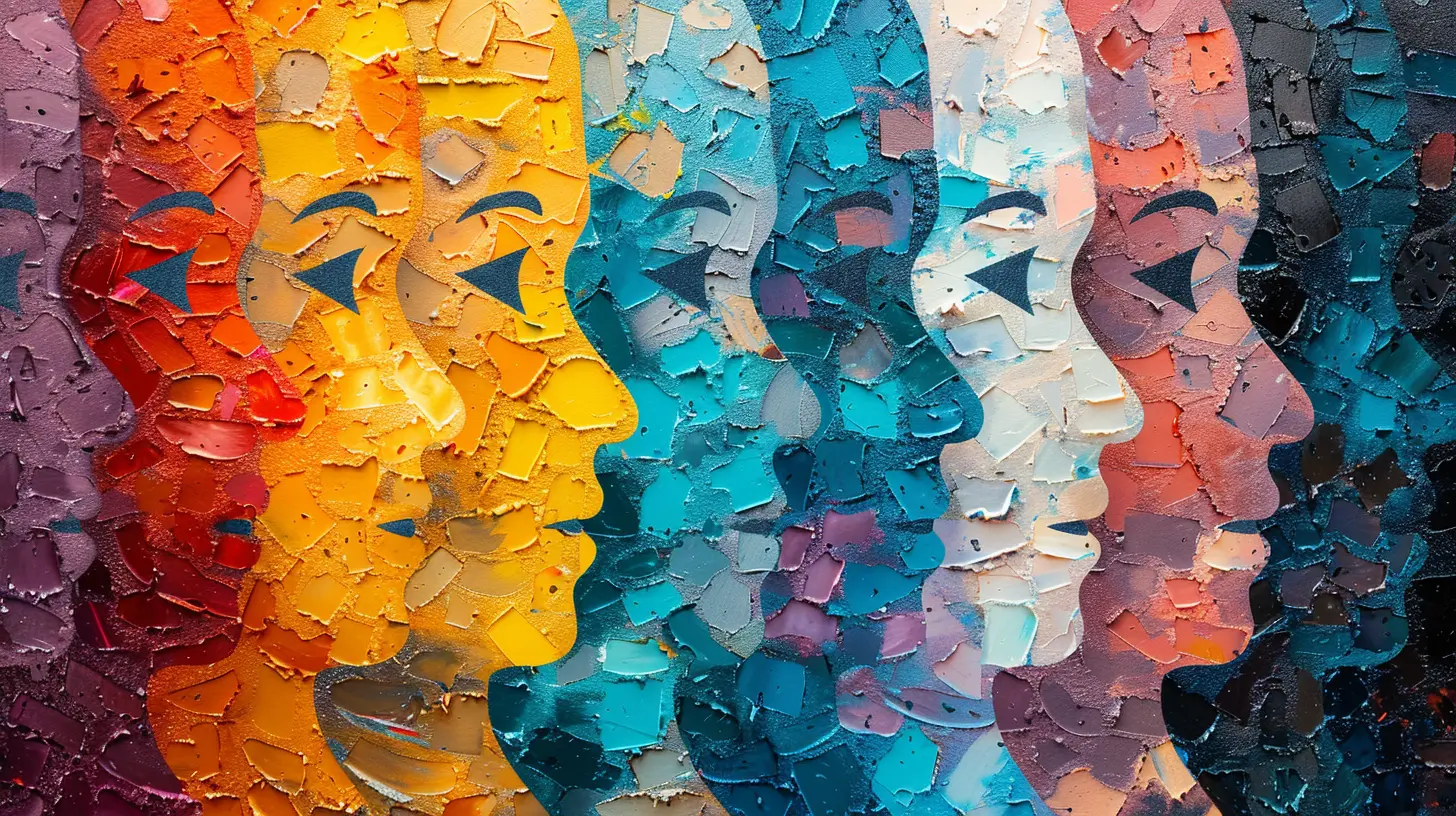Empowering Voices: Why Mental Health Advocacy Matters
6 July 2025
Let’s talk about something close to the heart—mental health. Not just the clinical, textbook definition of it, but how we feel every day, the weight we carry, and the battles we face that nobody else can see.
Mental health isn't just a topic; it's a movement. And at the center of that movement? Advocacy.
Mental health advocacy is like turning up the volume on voices that have been whispered, muted, or ignored for far too long. It’s about giving space to real stories, fighting stigma, and making sure no one has to struggle in silence.
But here’s the million-dollar question: Why does mental health advocacy matter so much?
Whether you're someone who has struggled directly, knows someone who has, or is just sick and tired of the shame wrapped around mental well-being—this article is for you.

The Silent Epidemic
Let’s get one thing clear—just because we can’t see a wound doesn’t mean it’s not bleeding.All over the world, millions are battling anxiety, depression, PTSD, eating disorders, and a whole spectrum of mental health conditions. And yet, there’s still a heavy silence surrounding these experiences.
How can that be? Imagine breaking a leg and being told to just "walk it off." That sounds ridiculous, right? But that’s often the advice thrown at people dealing with mental health struggles.
This is why advocacy isn’t just important—it’s urgent.

What Exactly is Mental Health Advocacy?
Think of advocacy as being both a megaphone and a bridge.It means speaking up—for yourself, for others, and for better systems. It means raising awareness, fighting stigma, supporting mental health rights, and pushing for improved care and resources.
Advocacy comes in many flavors:
- Public speaking
- Education, blogs (hey, like this one!)
- Social media activism
- Legislative change
- Peer support and storytelling
Even something as simple as correcting someone when they say, “He’s just crazy,” can be a powerful act of advocacy.

Why It Matters to Every. Single. One. of Us.
There’s a common myth that mental health issues affect “other people.” Nope. Mental health touches everyone—regardless of age, gender, background, or beliefs.You may not feel its impact every day, but chances are you know someone who is in the thick of it.
Mental health advocacy creates a ripple effect. It starts with one brave voice and spreads awareness, compassion, and policy changes. Eventually, it helps create a world where mental health is treated with the same seriousness as physical health.
Breaking Down the Barriers
One of the biggest walls mental health advocacy helps tear down? Stigma.Stigma is that invisible, toxic blanket that covers so many conversations about mental illness. It’s the reason people stay quiet, skip therapy, or feel ashamed for struggling.
Advocacy challenges that. It says, “Hey, you're not broken. You're human.”
And when someone hears that—when they really hear it—it can be life-changing.

The Power of Personal Stories
Here’s where it gets real.Stories are the heartbeat of advocacy. You could quote stats all day (and don’t worry, we’ll toss in a few), but nothing resonates like a real, lived experience.
When someone dares to say, “This is what I went through,” it opens the door for someone else to say, “Me too.” That’s magic. That’s healing.
And here’s the thing: You don’t have to be an influencer, author, or speaker to make an impact. Just being open with a friend, sharing your journal entry, or posting on social media can shine a light for someone still stuck in the dark.
Mental Health Advocacy in Action
Let’s spotlight the different layers of advocacy and how they show up in real life.1. Community Support
Think local support groups, school counselors, peer mentors—these are the unsung heroes of advocacy. They remind people that they’re not alone and provide spaces to feel heard.2. Education and Awareness
Workshops, school programs, webinars, blog articles (wink), and online courses help people understand mental health. Knowledge is power, and the more people know, the stronger the wall against stigma.3. Policy and Legislation
Advocacy can be political too. Pushing for better insurance coverage, school-based mental health programs, and workplace protections plays a massive role in making mental health care more accessible and equitable.4. Online Awareness Campaigns
Hashtags like #EndTheStigma or #MentalHealthAwarenessMonth aren’t just trends. They’re digital revolutions. Social media gives regular folks a massive platform to share, educate, and rally support.5. Representation in Media
Advocacy also means making sure media does a better job portraying mental health. When shows and movies get it wrong, it reinforces stereotypes. But when they get it right, it opens eyes and hearts.
The Role of Allies
You don’t have to personally struggle with mental illness to be an advocate.In fact, some of the most powerful advocates are allies—friends, family members, coworkers—who stand up, speak out, and support their loved ones.
Being an ally might look like:
- Choosing empathetic language
- Listening without judgment
- Encouraging therapy or support
- Standing up to misinformation
It’s about saying, “I’ve got your back,” even when you don’t fully understand the weight someone else is carrying.
Mental Health in the Workplace
Let’s get real: Work is already stressful without the added mental toll. Yet most workplaces are still trying to figure out how to support employees' mental well-being.Advocacy here means:
- Encouraging work-life balance
- Promoting employee mental health programs
- Normalizing mental health days
- Speaking up when burnout becomes the norm
When leaders advocate for mental health in the workplace, it not only boosts morale—it saves lives.
Youth and Mental Health Advocacy
Young people are leading the charge in mental health advocacy, and honestly? It’s inspiring.Teens and twenty-somethings are more open than ever before about their struggles. They’re using TikTok, YouTube, and Instagram to talk about therapy, anxiety, and healing—and they’re doing it with heart and humor.
That’s incredibly powerful.
Youth advocacy matters because early intervention makes a huge difference. Talking about mental health early can prevent a lifetime of pain.
Self-Advocacy: It Starts With You
You can’t pour from an empty cup. One of the most overlooked forms of advocacy is self-advocacy.This means:
- Prioritizing your mental health
- Seeking help when you need it
- Setting boundaries
- Saying “no” without guilt
- Owning your healing journey
Let’s be clear: Asking for help is not weak—it’s warrior work. It's the opposite of giving up. It's fighting back.
The Butterfly Effect of Empathy
Let’s wrap this up with something beautiful—the butterfly effect.In chaos theory (yes, we’re getting a little nerdy), the butterfly effect says one small action (like a butterfly flapping its wings) can lead to big, unpredictable changes elsewhere.
The same goes for mental health advocacy.
You never know who’s watching. Your small act of courage can inspire someone else to step forward. Maybe your story helps someone find the strength to get help—or even just make it through the day.
That’s not small. That’s huge.
Final Thoughts
Mental health advocacy is more than raising awareness—it’s raising voices. It’s changing lives. And guess what?You don’t need a degree, a platform, or a perfect past to be an advocate. You just need to care enough to speak up, lean in, and challenge the silence.
So, whether you’re battling your own inner chaos or standing beside someone who is—your voice matters. And the world needs to hear it.
Let’s keep the conversation going. Let’s build a community where "How are you?" really means, “I care.” Let’s create a culture where mental wellness is honored, supported, and celebrated.
Because when we empower voices, we empower healing.
all images in this post were generated using AI tools
Category:
Mental Health AdvocacyAuthor:

Gloria McVicar
Discussion
rate this article
1 comments
Karen McKinnon
Thank you for this insightful article on mental health advocacy. Empowering voices is crucial in breaking stigma and fostering understanding. I appreciate how you emphasize the importance of community support and open dialogue in creating a more compassionate and inclusive environment for mental health.
July 30, 2025 at 4:38 PM

Gloria McVicar
Thank you for your thoughtful comment! I’m glad you found the article insightful and share the vision of fostering compassion and inclusivity in mental health advocacy.


